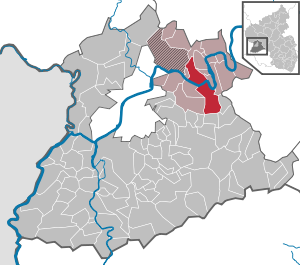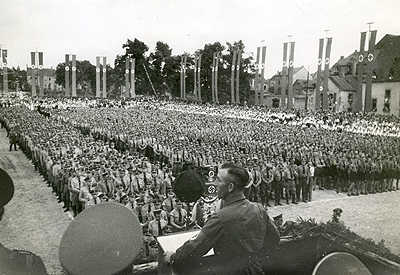Late in the afternoon in Trier Germany, November 9, 1938, there was a bang on the door on the Klepper home. Outside were 5-6 young men in their late teens and early twenties who pushed Otille Klepper aside and barged in. Her husband wasn't home, she was with her small son and their maid Anna. The men were armed with large sticks and tire irons. As they pushed past Frau Klepper, they hit the mirror of the hall tree, just inside the front door and shattered it. Frau Klepper grabbed her five year old son, Manfred and ran out the back door, down the stairs and into the cellar. They were joined by Anna and the upstairs neighbors. Otille locked the cellar door from the inside, and waited.
 |
| The Klepper family about 1934. Otille, Manfrred, Charlotte and Moritz. |
Kristallnacht, November 9 and 10, 1938, the night of the broken glass, marked the beginning of the Holocaust. On the night of November 9, gangs of young men broke into and destroyed the homes of Jewish families all over Germany. On November 10, Jewish Temples and businesses were destroyed.
Manfred, known today as Manny, heard the furniture being thrown around and glass breaking in their home for what seemed like hours. The noise let up for a few minutes then the gang went up the stairs and destroyed the neighbor's home. After about 40-45 minutes, the noise stopped. Frau Klepper and her neighbor unlocked the door and went upstairs. When they entered the Klepper home, she exclaimed, "Our place is a total disaster and so is our neighbors." The floor was covered with broken glass and dishes, not a single dish was left. Their dining room buffet had glass doors, which were shattered, the drawers were pulled out and the silverware was dumped on the floor. The furniture was broken, the beds were ripped apart, Glass shelves in the bedroom were torn down and the china and glass figurines were thrown on the floor and smashed to pieces. Nothing was usable. The Klepper home was uninhabitable.
Shortly after the noise stopped, there was a knock on the back door. Mrs Klepper slowly opened the door and saw four nuns from the Convent behind the Klepper's home. As she let them in, they said that they had heard the noise, and wondered what happened. They took a look around and left. Soon four more nuns came in with brooms, shovels and buckets. Manny's mother, her neighbor and the nuns began to clean up the mess. It took them all night and part of the next day to clear out the debris from the two homes. Manny and the neighbor children stayed in the cellar while the cleanup was taking place. When the two places were cleaned up, the nuns brought food and new dishes for the families.
 |
| Trier is one of the oldest cities in Europe. The Porta Negra is an ancient Roman building in Trier. |
Manfred Klepper, Manny, as he is known today, was born in Trier on November 18, 1931. He lived with his family Mering, a small village outside of Trier, where they owned a general store. Most of his family was in the farming business, one side of the family raised cattle, the other side owned vineyards.
In 1937, Manny and his parents moved into to Trier. They lost their business to the Nazis, so they moved in with the grandparents. Since the Nazi party and Hitler took control of Germany in 1933, life for the Jews became difficult. There were boycotts of Jewish businesses and Jewish people were continually harassed. In 1937, a large Nazi Rally was held in Trier making their situation more and more dangerous. The Kleppers had relatives in the United States, so they decided to leave Germany and come to America. But US foreign policy made it difficult for Jews to get permission to immigrate and it often took a long time to get the paper work together. Manny's grandparents' and sister's papers came through first, and they left Germany in 1938.
 |
| Nazi Rally in Trier, 1937 |







